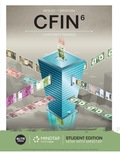
Concept explainers
To explain: The risks faced by a foreign affiliate of an MNC in today’s business world.
Introduction:
Multinational firm:
It is a business organization that operates in at least more than one country other than the one in which it has been incorporated.
Answer to Problem 1DQ
The common risks being faced by multinational corporation’s foreign affiliates are risks of finance as well as those associated with generating sales and maintaining market share. Apart from these risks, political and foreign exchange risks are also faced.
Explanation of Solution
A foreign affiliate of multinational corporations has to face several risks, such as that associated with sales generation, which refers to generating revenue at par with its competitors in the domestic market. The other common risk faced by foreign affiliates is to maintain market share, which refers to capturing a share in the targeted market through various marketing campaigns. The financial risk of raising funds for its operations is also faced by such affiliates. These are some risks that are also faced by a domestic firm as well.
In addition to these common risks, certain specific risks, such as the political instability of a country and frequently-renewed foreign policies, are also faced by such affiliates. Also, foreign affiliates are exposed to the risk of unstable and highly-volatile foreign exchange risks.
Want to see more full solutions like this?
Chapter 21 Solutions
Foundations Of Financial Management
- I need help with this situation and financial accounting questionarrow_forwardRemaining Time: 50 minutes, 26 seconds. * Question Completion Status: A Moving to the next question prevents changes to this answer. Question 9 Question 9 of 20 5 points Save Answer A currency speculator wants to speculate on the future movements of the €. The speculator expects the € to appreciate in the near future and decides to concentrate on the nearby contract. The broker requires a 2% Initial Margin (IM) and the Maintenance Margin (MM) is 75% of IM. Following € Futures quotes are currently available from the Chicago Mercantile Exchange (CME). Euro (CME)- €125,000; $/€ Open High Low Settle Change Open Interest June 1.2216 1.2276 1.2175 1.2259 -0.0018 Sept 1.2229 1.2288 1.2189 1.2269 0.0018 255,420 19,335 In addition to the information provided above, consider the following CME quotes that are available at the end of day one's trading: Euro (CME) - €125,000; $/€ Open High Low June 1.2216 Sept 1.2229 1.2276 1.2288 Settle Change Open Interest 1.2175 1.2176 -0.0083 255,420 1.2189…arrow_forwardI need help with this problem and financial accounting questionarrow_forward
 Business/Professional Ethics Directors/Executives...AccountingISBN:9781337485913Author:BROOKSPublisher:Cengage
Business/Professional Ethics Directors/Executives...AccountingISBN:9781337485913Author:BROOKSPublisher:Cengage


